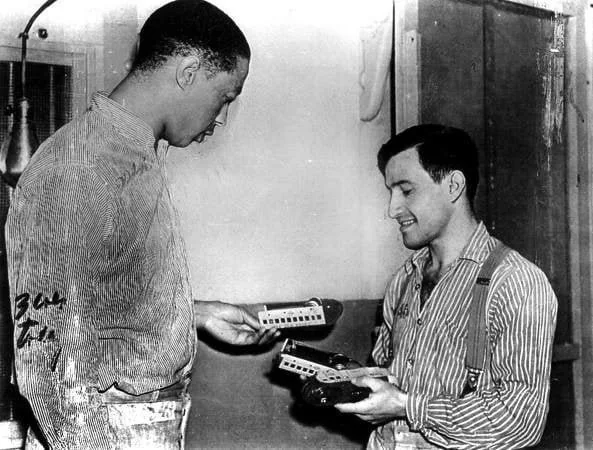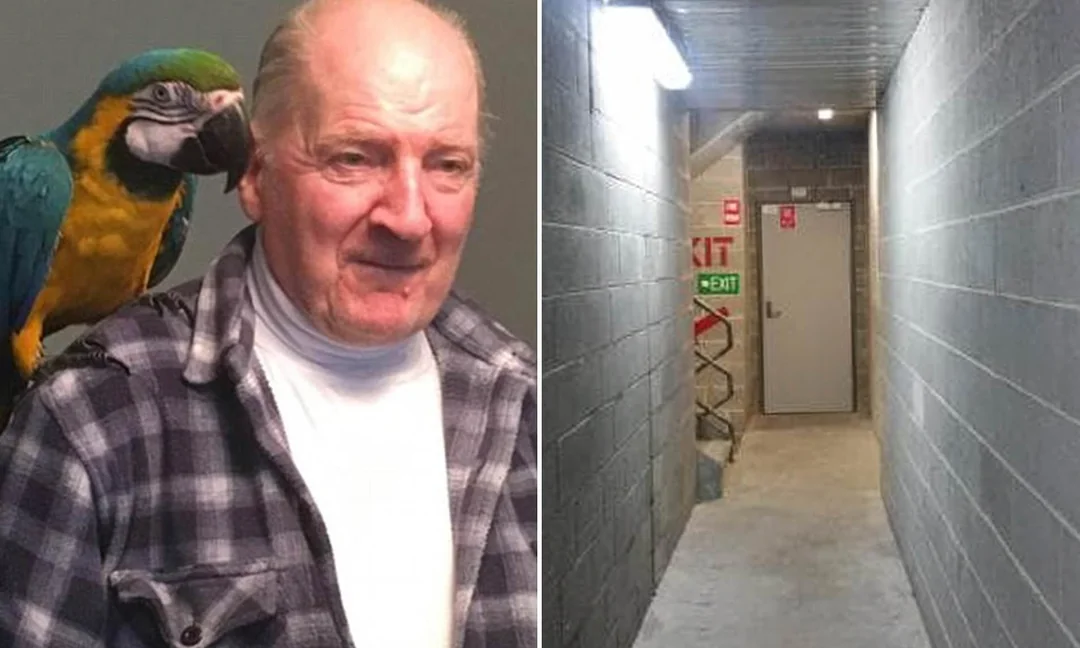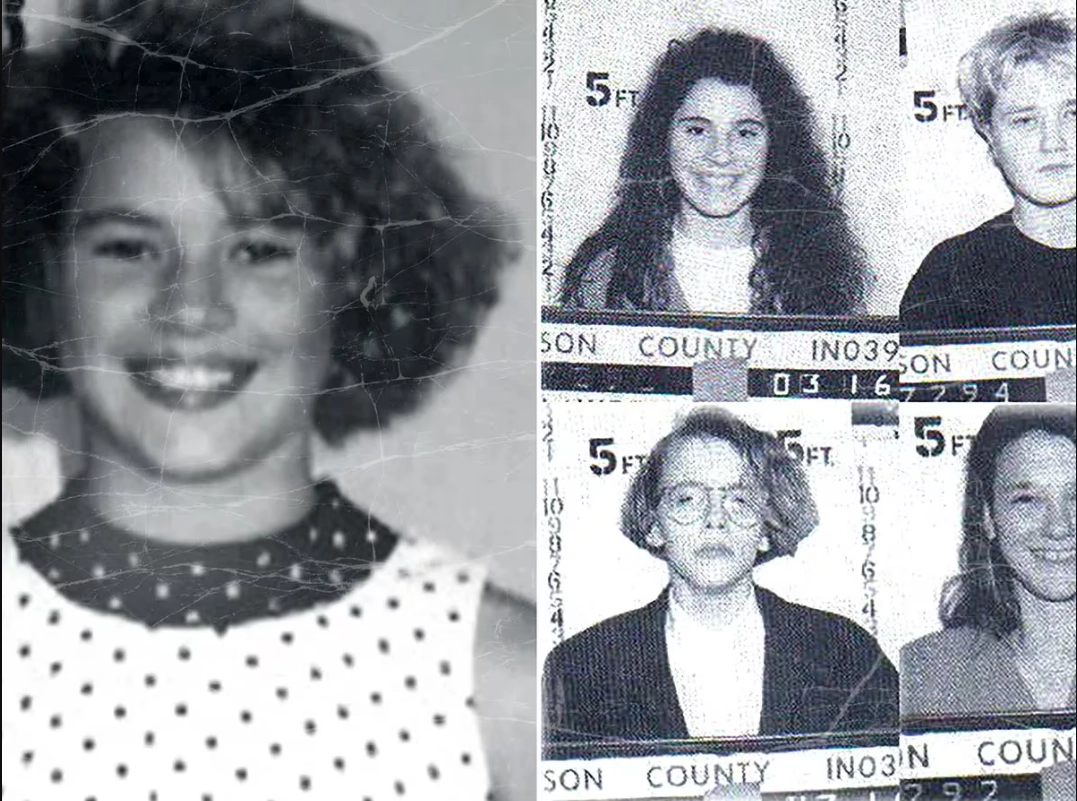The image shows Joe Arridy, his face childlike, handing his precious toy train to another inmate. It was his treasure, his only escape from the cold, unfeeling walls of death row. Joe, called the “Happiest Prisoner on Death Row,” didn’t understand the cruelty surrounding him. With an IQ of 46, he lived in a world of innocence, unaware of the unimaginable fate waiting for him.
That toy train wasn’t just a plaything—it was a lifeline, the only fragment of joy in a life riddled with pain and injustice. But here he was, giving it away, smiling as if he were heading to another day of play. In reality, Joe was being led to the gas chamber, a place where innocence meant nothing, where his life would be extinguished for a crime he didn’t commit.
Before his execution, Joe asked for ice cream. A simple, childlike request. He even saved a portion, planning to enjoy it later, completely unaware that there would be no “later.” Imagine that—an innocent man, robbed of his life, saving a spoonful of sweetness for a future stolen from him.
Decades later, in 2011, Joe was finally proven innocent. But the truth came too late, as it often does in a world where the voiceless are forgotten, where justice is blind not by virtue, but by choice.
This image isn’t just haunting—it’s a wound, raw and festering, a reminder of how humanity can fail its most vulnerable. Joe’s story doesn’t end with his death; it lingers, a ghost in the minds of those who dare to look at this picture and feel the weight of what it represents: innocence murdered by a merciless system.




